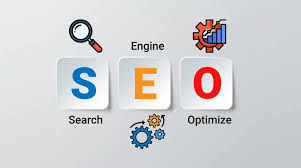Search engine optimization (SEO) is an essential digital marketing strategy that helps businesses improve their online visibility and drive organic traffic. While the principles of SEO remain constant across industries, the level of difficulty can vary significantly depending on the nature of the business, competition, and target audience.
Some industries face particularly challenging SEO landscapes due to factors like high competition, frequent algorithm updates, and the need for specialized content. In this article, we’ll explore which industries find SEO the most difficult and the reasons behind these challenges.
What Makes SEO Difficult in Certain Industries?
Before diving into specific industries, it’s important to understand the factors that contribute to SEO challenges:
- High Competition: Industries with numerous players vying for the same audience often face intense competition for top-ranking keywords.
- Search Intent Complexity: Understanding and addressing user intent can be difficult, especially in niches with varied customer needs.
- Regulations and Restrictions: Some industries are heavily regulated, limiting the type of content and keywords they can use.
- Evolving Trends: Industries with rapidly changing trends require constant updates to stay relevant in search results.
- Expensive Keywords: In some sectors, high-value keywords are saturated, making it harder for smaller businesses to rank.
Industries Where SEO Is Most Difficult
1. Healthcare and Medical
The healthcare industry faces some of the toughest SEO challenges due to its sensitive nature and strict regulations.
Why It’s Difficult:
- Strict Guidelines: Content must adhere to government and platform-specific rules, such as HIPAA in the US or Google’s E-A-T (Expertise, Authoritativeness, Trustworthiness) requirements.
- High Competition: Hospitals, clinics, telemedicine providers, and wellness companies all compete for the same audience.
- Complex Content Needs: Content must be accurate, easy to understand, and credible, often requiring input from medical professionals.
Example Keywords: “Best pediatrician near me,” “symptoms of diabetes,” “top cardiology hospitals.”
2. Finance and Banking
The finance industry, including banks, insurance companies, and investment firms, is another sector where SEO is highly competitive and complex.
Why It’s Difficult:
- High Stakes: Financial topics like loans, credit cards, and investment advice involve significant monetary decisions, making them a magnet for intense competition.
- E-A-T Requirements: Google prioritizes credible sources for financial content, meaning content must be created by or attributed to experts.
- Complex User Intent: Users might search for information, comparison tools, or direct services, making it hard to cater to all needs in a single piece of content.
Example Keywords: “best credit cards,” “mortgage rates 2024,” “how to invest in stocks.”
3. Legal Services
Law firms and legal professionals also face steep challenges in SEO due to high competition and the complexity of legal content.
Why It’s Difficult:
- Localized SEO Needs: Most users search for legal services in their area, making local SEO critical and competitive.
- Content Sensitivity: Legal content must be precise, compliant with local laws, and tailored to the audience’s needs.
- Pay-to-Play Mentality: Many law firms rely heavily on paid advertising, making organic SEO growth harder to achieve.
Example Keywords: “divorce lawyer near me,” “personal injury attorney,” “how to file for bankruptcy.”
4. E-Commerce
The e-commerce industry, especially in niches like fashion, electronics, and beauty, is one of the most competitive landscapes for SEO.
Why It’s Difficult:
- Product Saturation: Thousands of businesses often sell the same or similar products, making differentiation challenging.
- High Volume of Pages: Managing SEO for hundreds or thousands of product pages requires significant resources.
- Seasonal Trends: E-commerce businesses must continuously optimize for seasonal events like Black Friday, Christmas, or back-to-school shopping.
Example Keywords: “best wireless headphones,” “cheap running shoes,” “organic skincare products.”
5. Real Estate
The real estate industry is another field where SEO is incredibly difficult, especially for smaller agencies and independent agents.
Why It’s Difficult:
- Localized Competition: Real estate SEO often revolves around specific cities or neighborhoods, increasing competition in localized markets.
- Frequent Updates: Listings change regularly, requiring constant updates to content and metadata.
- Complex Queries: Users may search for properties, market trends, or legal information, making it challenging to address all intents.
Example Keywords: “houses for sale in Los Angeles,” “real estate market trends 2024,” “best real estate agent near me.”
6. Travel and Hospitality
The travel and hospitality industry, including hotels, airlines, and travel agencies, faces unique SEO challenges due to its global nature and seasonal demand.
Why It’s Difficult:
- Global Competition: Competing with major travel aggregators like Booking.com and Expedia is a significant challenge for smaller businesses.
- Seasonality: Travel-related searches fluctuate with seasons, holidays, and current events, requiring constant adjustments.
- Content Volume: SEO strategies must address diverse topics, from destination guides to booking services and customer reviews.
Example Keywords: “cheap flights to New York,” “best hotels in Paris,” “summer vacation ideas.”
7. Technology and SaaS (Software as a Service)
The tech industry, particularly SaaS businesses, faces challenges in creating content that balances technical accuracy with accessibility.
Why It’s Difficult:
- Fast-Paced Evolution: The tech landscape changes rapidly, making it difficult to maintain evergreen content.
- Sophisticated Audience: Target audiences often have high expectations for accuracy, depth, and relevance.
- Competitive Keywords: Popular keywords like “best CRM software” or “cloud storage solutions” are heavily contested.
Example Keywords: “top project management tools,” “cloud hosting providers,” “best antivirus software 2024.”
Tips to Overcome SEO Challenges in These Industries
- Prioritize Quality Content: Focus on creating accurate, valuable, and engaging content that meets E-A-T requirements.
- Invest in Long-Tail Keywords: Target less competitive keywords with lower search volume but higher intent.
- Leverage Local SEO: For industries like real estate or legal services, optimize for localized searches to improve visibility.
- Build High-Quality Backlinks: Establish credibility by earning backlinks from authoritative sites within your industry.
- Use Advanced Tools: Invest in tools like SEMrush, Ahrefs, or BrightEdge to identify opportunities and optimize strategies.
Conclusion
SEO is challenging in all industries, but sectors like healthcare, finance, legal services, e-commerce, real estate, travel, and technology face unique hurdles. These challenges stem from intense competition, strict regulations, and the need to meet both user intent and search engine requirements.
By understanding these difficulties and implementing tailored strategies, businesses in these industries can achieve better rankings, drive organic traffic, and maintain a competitive edge in the digital landscape.

